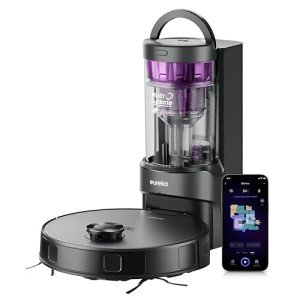Understanding Robot Vacuum Cleaner Prices: A Comprehensive Guide
In current years, robot vacuum have actually changed the way individuals clean their homes. Their ease of use, convenience, and advanced technology have made them significantly popular. Nevertheless, with a plethora of models and features readily available, potential buyers frequently find themselves asking an essential concern: What should I anticipate to pay for a robot vacuum cleaner? This post aims to clarify the expenses associated with robot vacuum cleaners, factors that influence their costs, and pointers for finding the best device for your budget.
The Price Range of Robot Vacuum Cleaners
Robot vacuum cleaners can vary extensively in price. Here, we break down the normal price range for different classifications:
| Category | Price Range | Description |
|---|---|---|
| Entry-Level | ₤ 100 - ₤ 250 | Fundamental functions, appropriate for little areas, minimal smart technology. |
| Mid-Range | ₤ 250 - ₤ 500 | Improved cleaning abilities, better navigation, some smart functions. |
| High-End | ₤ 500 - ₤ 1,000+ | Advanced mapping, powerful suction, web connectivity, and app integration. |
Entry-Level Models
Affordable robot vacuums are ideal for those who require a standard cleaning tool without luxury functions. They typically handle tough floorings well but might fight with carpets and are generally less durable.
Mid-Range Models
These vacuums often come equipped with much better suction power and more intelligent navigation systems, making them ideal for larger homes with combined flooring. Lots of designs in this variety offer Wi-Fi connectivity and smart device control.
High-End Models
High-end robot vacuums are developed for major cleaning lovers. They normally provide sophisticated mapping technology, powerful suction, and integrated video cameras for enhanced navigation. Additionally, numerous high-end models permit vacuuming on a schedule and even have the capability to empty their dust bins instantly.
Factors Affecting Robot Vacuum Prices
Understanding the factors that can influence the price of a robot vacuum can assist consumers make more informed buying choices. The following list outlines some key features that can affect price:
- Brand Reputation: Established brand names normally bring a greater cost due to their track record and dependable customer assistance.
Cleaning Technology:
- Suction Power: More effective models will be more expensive.
- Navigation Systems: Advanced designs with much better obstacle detection and mapping abilities cost more.
- Smart Features: Models that use connection to apps, voice control compatibility, and advanced scheduling choices tend to be priced higher.
- Battery Life: Longer-lasting batteries typically lead to a greater price, as they enable the vacuum to tidy bigger areas without requiring to charge.
- Dustbin Size: Larger dustbins can be more convenient for consumers, promoting a higher price point.
- Extra Features: Some vacuums provide mopping capabilities, self-cleaning functions, and high-efficiency filters, which can increase their price.
Budget vs. Features: What to Consider
When acquiring a robot vacuum, it's essential to weigh your budget against the features you most desire. Here are several considerations to help you make a notified choice:
1. Examine Your Home's Needs
- Size of Space: Larger homes may benefit from more sophisticated vacuums that can cover more ground without regular recharging.
- Floor Types: If your home contains a mix of carpet and tough floorings, choose a vacuum designed for both.
2. Determine Desired Features
- Decide which features are vital for you, such as scheduling, app connection, and cleaning modes.
3. Price vs. Durability
- While a higher financial investment can yield longer-lasting models, it's worth considering lower-cost choices if you're unsure about long-lasting usage.
Regularly Asked Questions (FAQs)
Q1: Are robot vacuums worth the investment?
A1: If you lead a busy way of life or have mobility issues, a robot vacuum can conserve substantial time and effort in cleaning, making them a beneficial financial investment.
Q2: How typically should I change a robot vacuum?
A2: Depending on the design and use, a robot vacuum typically lasts between 3 to 5 years. High-end designs may last longer with appropriate upkeep.
Q3: Can a robot vacuum completely replace a standard vacuum?
A3: While robot vacuums effectively handle everyday cleaning, they may not replace traditional vacuums for deep cleaning, particularly in multi-level homes or locations requiring substantial care.
Q4: What is the typical life-span of a robot vacuum?
A4: The lifespan of robot vacuums differs by design, however the majority of last between 3-5 years with regular maintenance, like dustbin emptying and filter modifications.
Q5: Do robot vacuums work on carpets?
A5: Yes, but the efficiency will depend upon the design. Higher-priced models generally have better suction power to tidy carpets successfully.
The marketplace for robot vacuum is varied, with models to fit various budget plans and cleaning requirements. Whether robot vacuum sale are looking for a fundamental cleaning tool or a sophisticated device equipped with various smart features, comprehending the price ranges and elements impacting costs is important. With cautious factor to consider of specific needs and financial restrictions, potential buyers can find a robot vacuum that will enhance their cleaning routine and supply long-term complete satisfaction.

